Killer Pack (Dawn of Mammals Book 4) Read online
Page 2
She turned her full attention to him. “I’m sorry. Is it that bad?”
His mouth twitched, and she knew he hated admitting it. “Pretty bad. A bit of pain. Mostly I’m incredibly weak. It’s hard to sit up. Which is why I’m down here, an invalid.”
“I wish I could do something for you.” Other than giving him willow bark tea, hoping it thinned blood like aspirin, she had come up with no better idea for what she was guessing was a heart problem. She knew the digitalis plant back in her own time, but there wasn’t any nearby, and if there were, she had no idea how to administer it or if it was even the right herb to give for Bob’s situation. Maybe it wasn’t native to the Americas but to Europe. Maybe it only evolved a few million years before the modern era, which meant it wasn’t here to be found. “You need to rest.”
“I am resting.”
“The hike here was hard on you.”
“What other choice did we have? If only the timegate had opened up next to a lake, not three days’ walk away from one.”
“If only we hadn’t followed M.J. in the first place.”
“Or gone on this fossil field trip,” said Bob.
“Or taken this job this summer,” she said.
“We should have both taken up a life of crime when we were eighteen,” Bob said, “and then we’d both be in a nice comfy prison today.”
“And you’d have decent medical care there.”
“And a scary roommate with tattoos who would have knifed me in my sleep back in 1992.”
“And I’d be the unwilling wife of a biker gal named Marge. Still, all things considered,” she said, “I might vote for Marge and prison. At least I’d have a roof.” She was not looking forward to spending a week here camped out on the grass, exposed to animals and elements.
The kids were in deep conversation. Bob watched them.
“I guess I should build a fire before the rain comes and cook up this meat,” she said.
“Sorry I can’t help you.”
“It’s no problem. Not like it’s hard work. You okay here for a minute alone?”
“I’m not alone.” He pointed to the others.
Hannah rose, brushed herself off, and walked away to look for fuel for the fire. Twigs, dried dung, a tuft of matted grass that hadn’t greened up yet. Anything would do to get it started, though she’d have to move farther out to gather bigger wood to keep it going. Maybe she should ask the kids to do that before they left, gather wood enough for a day. She’d leave Bob’s side as infrequently as she could manage. They could live on light rations for a week. As long as it continued to rain and provide water, as long as no big predator happened across them, they’d survive.
And if it didn’t continue to rain?
She pushed the question from her mind. Leaving Bob here alone for more than a few hours was unthinkable. The others needed the food and water that the lake guaranteed, and the protection of the cabin for the next month. Whatever happened to her on this grassy hill would happen. Weather was out of her control. She would control what she could and hope for the best.
She’d wandered a hundred yards from Bob by this point and turned back with her scant armload of dried dung and sticks the wind had carried here. As she did, the kids started standing up from their circle. They’d decided quickly.
They formed a line, confusing her. It ended a dozen yards from Bob and, as if a turnstile was set up there, the first of them stepped forward. One by one, they were coming forward and whispering to him. It was, she realized, a form of secret ballot.
Chapter 3
Hannah cleared grass for a fire ring. She had abdicated, so she made herself hang back and remain an observer. One by one, the kids bent to Bob and whispered to him. When they had all voted, Bob waved everyone closer.
Hannah did too. She wanted to hear the outcome.
Bob said, “I’m glad to say, it wasn’t even close. That’s a good sign. It means you all trust the new leader. Claire?”
“Me?” she said, clearly surprised.
“Yes, you. Come over here, would you?” When Claire had moved to his side, he said to the others, “You’ve made your decision, and I want you to remember it was your decision. Claire has final say. Don’t fight her on that. I know she’ll listen to everyone’s ideas, but when she gives an order, you do whatever she says, and quickly. Right? No whining. No backstabbing.”
“No revolutions,” said Ted.
“Indeed not,” Bob said.
“What if I suck at it?” Claire said. “I mean, thank you all. I should have said that first. But what if I’m no good?”
Bob said, “Why don’t you all give it a month? Or a month and a couple days beyond that. After the next trip through the timegate, if you all want a new leader, you can vote again. If Claire has had it with all of you and wants to quit, she can at that point. But give it until then. Does that sound good? Everybody?”
Most of them nodded.
“Great,” Bob said. “It’s time for you to get back to the cabin.”
Hannah cleared her throat. “One thing before you go. If you could take a half-hour to go out and get wood first so I don’t have to leave Bob today, I’d appreciate it.”
Ted said, “I know where there’s a patch of trees. Who has a hand axe?”
Claire glanced Hannah’s way before saying, “Remember, we need to stay in pairs. I don’t want anyone going out alone, ever. That’s a rule we stick with. Pick a partner.”
Hannah felt a lurch when she realized that Laina’s disappearing act meant that there were only seven kids left. Seven kids, one sick adult, and her. It felt like too few. They had been twelve at the beginning. She felt a stab of pity for Claire. If the girl was in charge when someone else died, she’d feel the burden that Hannah had been feeling—that she still felt.
Ted partnered with Dixie. He seemed to get along with her better than most. Rex was with Nari. Jodi and Zach, a romantic pairing now, were nearly inseparable. Ted said, “Claire, come with us.”
Claire shook her head. “I want to talk to Hannah and Mr. O’Brien while you six are collecting wood. See you soon.”
Hannah thought that she had started off strongly when she plainly stated her intention rather than ask for permission. They had chosen their leader well. As Hannah watched Jodi and Zach move off with linked hands, she also thought about how Claire’s being gay might have influenced their choice. Without the possibility of romantic entanglement, she would stay neutral in a way the others might not. Not that any other romantic pairings seemed to be in the works. But they were three months, at minimum, away from home. A lot could happen in three months.
Claire waved her over.
Hannah said, “Congratulations.”
“Thanks, but I’m not sure it’s a good thing. I mean, I’ll do the best I can, but it might be hard. Tell me anything you can think of. Any advice.”
Bob said, “Be yourself. They already respect you, or they wouldn’t have chosen you.”
“What if I don’t know what to do?” Claire said.
“You know by now who is good at what,” Bob said. “Rex is your engineer. Ted has great physical ability. Jodi is becoming a heck of a good defender.”
“What about Zach and Jodi?” Claire was watching Hannah, not Bob.
“What about them?” Hannah said.
“I feel funny like—I don’t know. Keeping watch over them. Telling them not to have sex. You can get away with that. You’re an adult.”
“Then don’t say anything,” Hannah suggested. “Look, you all know what to do in that regard. Nothing I told them to do was likely to change what they did. I just reminded you all of the risk of pregnancy in a world without hospitals.”
“I hope we’re back long before nine months is out,” Claire said.
“We may not get back at all,” Bob said. “You might not announce that, but I think as our new leader you need to be thinking about it.”
“We won’t? Why?”
“Laina was the one who u
nderstood the timegate,” he said gently. “Now we’re going to be jumping without any sense of how many years we’re traveling. We might not be able to get anywhere close to home. I think with Laina we had a chance at it. Or at least of hitting a time when humans inhabited North America. Now, though?” He shook his head.
“Oh.” Claire’s face fell. Within seconds, Hannah could see her push her emotional reaction aside and begin thinking about it. “I guess I need to keep us focused on the here and now anyways.”
Bob said, “Yes. But survival is only going to take a few hours each day. What else are you going to spend your time at?”
“Well, experimenting, I guess. Smoking meat, getting that perfected so that a big hunt can feed us for a couple weeks. Finding an easy way to process the cashews. Improving at weaving. And at making stone knives. Exploring the environment and figuring out what the materials around us can be used for. Maybe I’ll set up a sort of competition, see who can come up with the best craft innovation.”
“Sounds good,” Bob said.
Claire was still thinking. Finally, she nodded. “Okay. Maybe I can do this.”
Hannah said, “You’ll do great.”
Bob said. “You will.”
“What about Dixie?” she said.
Bob said. “What about her?”
“What if she refuses to do something?”
Bob said, “Do you think she will?”
“I think that you two were a kind of subtle force on her, keeping her in line. Without you there, I’m a little worried she’ll just—I don’t know. Go on strike or something. Lie back and file her nails all day.”
“Peer pressure will probably keep her in line,” Bob said.
“Can I make a rule? Like, if she doesn’t work, she doesn’t eat?” Claire looked from one adult to the other.
Hannah said, “You’re in charge. You can do whatever you want. Though I can tell you from personal experience that hitting someone isn’t worth it. The guilt alone will screw you up.”
“No one hates you for that,” Claire said. “Except Dixie, maybe.”
“It was wrong of me,” Hannah said. “I gave in to a base instinct. That’s not great leadership. A good leader can control herself. Even if everyone else is freaking out. Even if someone just died. Everyone else will need you more at such a time.”
Claire said, “I’ll remember that.”
Hannah let Bob handle the rest of Claire’s questions. She thought the girl would do well. She was certainly taking the responsibility seriously.
She handed Claire the first aid kit. It was nearly empty of supplies from the technological age, but now there were mosses and willow bark and a tin of pinesap in there. “You’ll need this more than us. Except I’ll keep the willow bark for Bob.”
“I think I’ll assign the first aid job to Nari until you’re back.” Claire’s eyebrows were up, looking for Hannah’s opinion.
She said, “Whatever you think is best.” She didn’t even allow herself to privately theorize who might be best at it. It was a relief to be handing over the decisions to the girl.
No, to the young woman. She had to quit thinking of them as kids. They weren’t that. They had grown up quickly out here.
Starting a half-hour later, the others drifted back in pairs, carrying wood. By the time they had all returned, there was a tidy stack of firewood, enough to last a day, certainly. With Hannah and Bob alone out here, she wanted to keep a fire going most of the time. It’d keep animals away, and a flaming branch would provide some defense against any predator willing to brave the fire. To animals of this time, all fire was wildfire and therefore dangerous.
As she watched the others walk away, headed back to the lake, she felt for the first time since they’d come more worried for herself than for them. They were seven together, and they’d have walls to sleep behind. She and Bob, though, were two alone. They’d be the only two humans in a vast world of grass, where predators roamed either alone or in packs, and even the giant grass eaters that weighed over a ton might trample them to death without breaking stride.
As Bob fell into an exhausted sleep, she thought it was not really two of them alone. Their survival was entirely on her, as Bob was as vulnerable right now as a newborn baby.
Chapter 4
“You’re sure you’ll be all right?” she asked Bob. It was a damp morning, two days later, and the firewood was gone. They needed more. They still had the bones of the animal she killed to make broth, but she also wanted to find more to eat than that.
“Yeah, I’ll lie here and dry in the sun.”
“At least we have water.” It had rained overnight and she had been able to collect enough water to get them through a full day.
“Go on. Don’t worry about me.”
She smiled at him, knowing full well she’d worry. But she had to leave him.
To begin with, she hunted for game. She found it, midmorning, near a patch of brush. Heavy birds that favored the ground, like partridge or quail or small turkeys, were congregated there. After spotting them from a rise quite a distance away, she took her time sneaking up on them, crawling through the grass only when the breeze stirred it, hoping to disguise her movements. When the wind died down, she plucked handfuls of grass and stuck that in her hair as camouflage. It took her over an hour to crawl close, but she was finally within rock-throwing range.
Forcing herself to stay patient, she waited for her chance. She wanted one bird to be near her and for the rest to be turned away. That way, if she missed, they might settle back down after a brief fright.
Finally, the right moment came, and she lifted to her knees and flung a rock. Rock-throwing was a skill she’d improved at mightily since becoming lost in time. Rock throws were sometimes enough to drive off a predator. And today, one throw provided her dinner. The rock flew true and hit the bird right in the head.
Whoo! Great shot! She kept her cheering for herself entirely internal.
The flock took off as she stood and made for the downed bird. It might only be stunned, and she needed to get to it before it recovered its wits, so she took the bird in hand over the rest around the bush. She grabbed it, twisted its neck, and felt the satisfying crack of the vertebrae separating.
Without water, plucking it would be impossible. She’d burn off the feathers. She had seen a stand of stubby trees in the distance about two hill crests ago. She detoured for it, collected wood until she was loaded down, pack and arms, and then retraced her steps—her path through the grass was still clear—and made it back to Bob in mid-afternoon.
He was still there, unharmed, and she breathed a sigh of relief.
“I got us dinner and wood.”
“Thank you. I’m starving.”
“Me too. Let me figure out how to cook this sucker.”
Burning feathers smelled awful, but it got the job done. She rubbed the charred skin with handfuls of grass to get the last charcoaled bits of feathers off, gutted the bird, and then stuck the heart and liver inside the cleaned bird. She pulled out the dental picks from her fossil-gathering supplies and used them to close the body cavity. Then she shoved a couple of forked sticks into the ground and spitted it with a third stick. She balanced the spit over the fire, adjusting the fuel level until she thought it would cook without burning.
When she was satisfied with the arrangement, she sat by Bob. “How you feeling?”
“Weak.”
“In pain?”
“Not much. Not if I just lie here. I got up while you were gone to relieve myself, and by the time I got back, it felt like I’d run a mile.”
“Wait until I’m here next time.”
“When a man has to go,” he said. “Tell me more about your family to distract me from self-pity. You mentioned once about your father not being around.”
“Yeah.” She didn’t really want to talk about her past, which she had worked hard to forget, but she had a difficult time refusing him. There was so little she could do for him to ease pain or
worry, and distraction was one of the few gifts she had to offer him.
“So why’d he leave? Do you have any hint it was going to happen?”
Reluctantly, she answered with the truth. “I know exactly why he left. And I knew then too.”
“Ah.”
“It was because of my sister. Or my mother, really, in relation to my sister.”
“Go on.”
She pushed back a sigh. “My sister is mentally retarded.”
His wince didn’t surprise her. “We say developmentally disabled now.”
“No, you say developmentally disabled. I quit saying it when I was twelve. For one thing, all the kids in the neighborhood and at school called her retarded. And for another, my mother went through this phase. May still be in that phase, in fact. She started hanging out with this group who convinced her that my sister—and all people like her—could be cured, with only the right approach. So my mother started demanding I call her ‘developmentally pre-abled’ as if with the right dose of fish oil and vision tricks, my sister would suddenly wake up one morning and get an academic scholarship to Harvard. I balked at joining her in her delusion, and from then on I reverted to saying ‘retarded.’”
“You wanted to punish your mother.”
“Probably. And I wanted her to quit having dreams of outcomes that were impossible. To see our lives for what they were.”
“That must be hard for a parent. I can’t imagine.”
“It’s hard for everyone in the vicinity.”
“But I’m sure your sister was a source of great delight.”
“You’ve been watching those goofy Hollywood movies about retarded people. Like that’s how it really is. Trust me. It isn’t.” She could feel herself getting angry and told herself to back off. It wasn’t his fault he had fallen for the myth. But she wanted, for some reason, to try to get Bob to understand. She never talked about this any more, because she knew the story that people wanted to hear, but she carried the reality with her, would always carry it. What better chance would she have for making someone see past their prejudices than this? She didn’t live in the complex human world where people’s movie-created expectations and memorized smarmy sound bites about the topic were against her. There wasn’t a whole culture repeating greeting-card platitudes all the time. At worst, if she were frank here, she wouldn’t get a whole group of people despising her over failing to play her movie role. She’d lose the respect of only one man. So…screw it. Tell the truth for once.

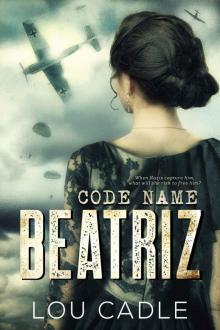 Code Name- Beatriz
Code Name- Beatriz Oil Apocalypse Collection
Oil Apocalypse Collection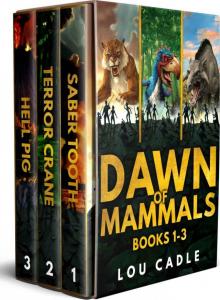 A Dawn of Mammals Collection
A Dawn of Mammals Collection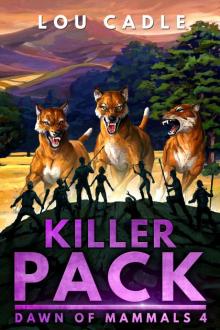 Killer Pack (Dawn of Mammals Book 4)
Killer Pack (Dawn of Mammals Book 4)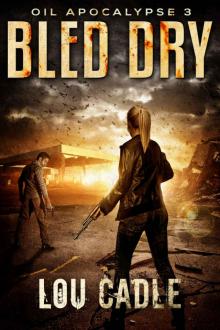 Bled Dry
Bled Dry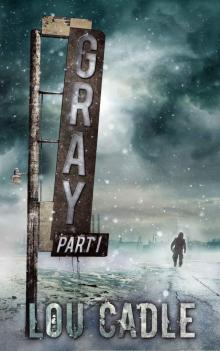 Gray (Book 1)
Gray (Book 1) Dawn of Mammals (Book 4): Killer Pack
Dawn of Mammals (Book 4): Killer Pack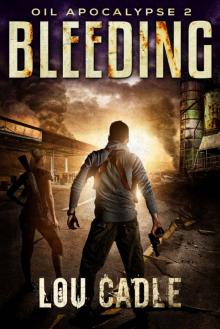 Bleeding (Oil Apocalypse Book 2)
Bleeding (Oil Apocalypse Book 2)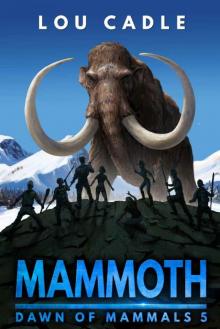 Dawn of Mammals (Book 5): Mammoth
Dawn of Mammals (Book 5): Mammoth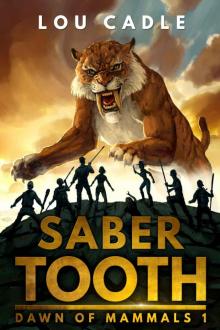 Saber Tooth (Dawn of Mammals Book 1)
Saber Tooth (Dawn of Mammals Book 1)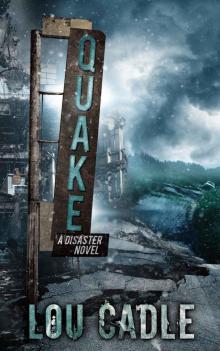 Natural Disaster (Book 2): Quake
Natural Disaster (Book 2): Quake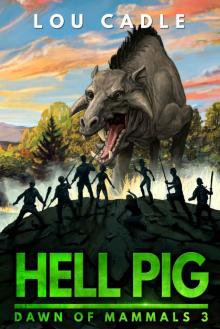 Hell Pig (Dawn of Mammals Book 3)
Hell Pig (Dawn of Mammals Book 3)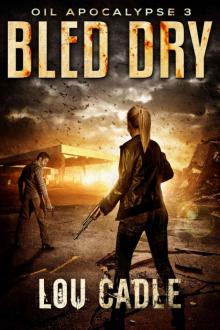 Bled Dry (Oil Apocalypse Book 3)
Bled Dry (Oil Apocalypse Book 3)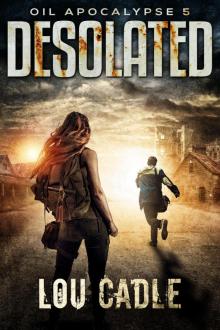 Desolated
Desolated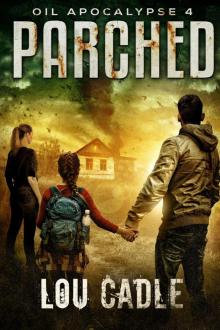 Parched
Parched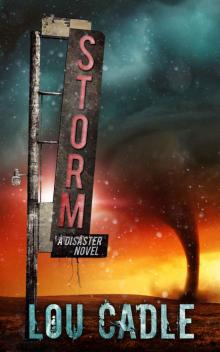 Natural Disaster (Book 3): Storm
Natural Disaster (Book 3): Storm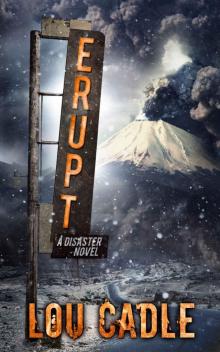 Natural Disaster (Book 1): Erupt
Natural Disaster (Book 1): Erupt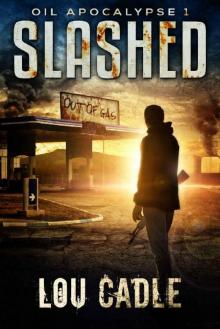 Slashed (Oil Apocalypse Book 1)
Slashed (Oil Apocalypse Book 1)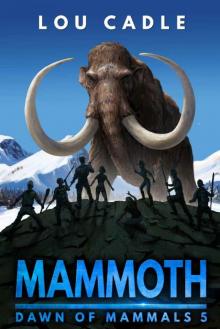 Mammoth (Dawn of Mammals Book 5)
Mammoth (Dawn of Mammals Book 5)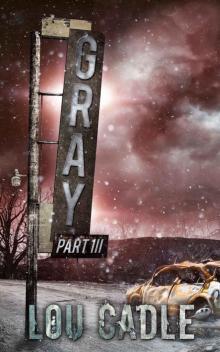 Gray (Book 3)
Gray (Book 3)